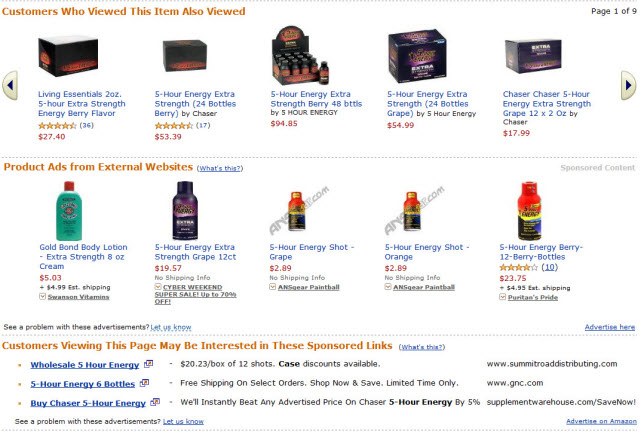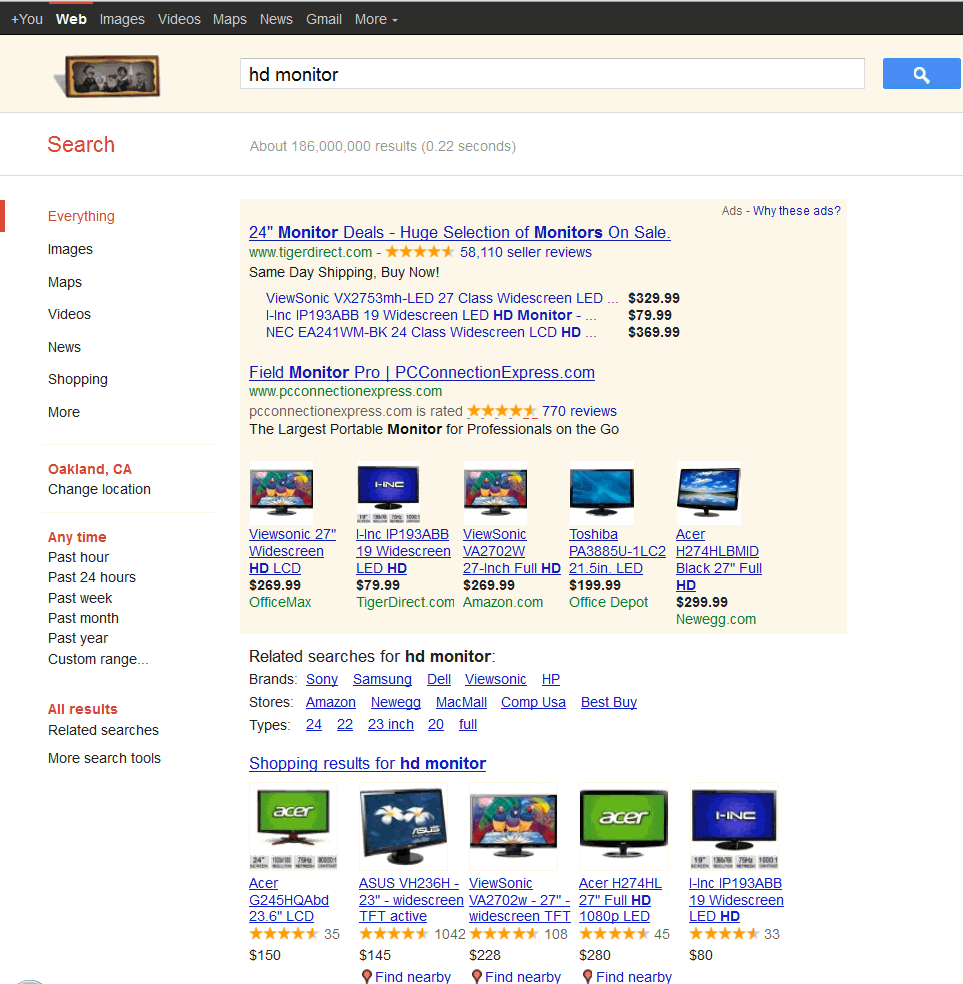Walmart is getting much more aggressive with their online strategy:
With some 1.4 million employees on its U.S. payroll, Walmart's world is about as large as the state of Maine. That's massive by any standard, but when you consider how social media amplifies that number, it's not simply a huge group but an influential one. No small wonder, then, that the earth's largest employer is taking greater measures to motivate and mobilize its people -- and opening up more opportunities for consumer brands to also reach them along the way.
These brands can not only leverage internal resources to further build off the boost Google offers them, but they can then take that attention and sell it back off to the highest bidder:
It's not clear how much ad revenue Walmart World has made or whether MyWalmart.com will become a profit center. But the former already takes in millions of dollars annually in ads from vendors seeking an audience with Walmart employees, according to people familiar with the matter.
If Google consolidates markets too aggressively then ultimately they create competition for themselves through vertical ad networks. In some cases (say travel) Google can buy out the market plumbing & then reassert control:
Wertheimer drew some criticism when he explained that ?our airline partners were very clear? that they wouldn?t participate in Google Flight Search if online travel agency booking links were included in the core flight-search results.
But Google doesn't have that same influence over retail & each time they put the big brands front and center the more they reinforce that 3rd party dominance.
In addition to leveraging their workforce, it is also quite easy for these brands to use customer incentives to dominate social media.
Amazon.com is also carrying far more ads these days & they sell ads on 3rd party sites.

The above is another reason why Google is pushing so hard to control the second click. If they can taste the traffic again they add efficiency to their own model while introducing another layer of friction to other retailers.
When users finally manage to leave the Google click circus, Google tries to pull them back into Google with the Google Related toolbar

In the above quoted AdAge article there is some skepticism around how much a company like Walmart can get out of underpaid wage slaves:
"It's really hard when you're a person making poverty-level wages, just had your health-care premiums raised 60%, and you can only get part-time hours, to be a good ambassador for the brand, no matter how much you love it," said Jennifer Stapleton, spokeswoman for Making Change at Walmart.
However I think that skepticism is misplaced, as the less a person has the more thankful they tend to be for the little bits they do have. Most people who have nothing do not realize how systems are engineered to screw them over.
It is only when you have free time to think & are not clouded by arbitrary short-term stress that you can ponder the bigger & more uncomfortable questions in life. As long as you don't consider those uncomfortable questions it is far easier to push anything, because you don't know any better.
"The entire web has become full of garbage. The web has become almost a digital Detroit." - Roger McNamee.
If Walmart's strategy works then this ultimately will be why Google's brand-only approach to search will fall flat on its face. If this is successful I would then expect Google to put out some public relations drivel about celebrating the diversity of the web & move away from brand in the next 2 or 3 years.
 In the meantime, I expect Google to keep increasing search complexity such that it's prohibitively expensive to make & market a small independent commercial website. That will force many smaller companies to live inside the Google ecosystem, with Google ranking the Google-hosted pages/products/locations for those companies, so that they can serve ads against them and get a bigger slice of the revenues.
In the meantime, I expect Google to keep increasing search complexity such that it's prohibitively expensive to make & market a small independent commercial website. That will force many smaller companies to live inside the Google ecosystem, with Google ranking the Google-hosted pages/products/locations for those companies, so that they can serve ads against them and get a bigger slice of the revenues.
Google's ad network is far more profitable than even the lowest waged employee, as it doesn't need to be fed & is designed to be an agnostic & amoral yield optimization tool. And it is effective enough that the biggest retailers are now becoming ad networks.
Average products for average people - with ads everywhere.
Welcome to the WorldWideMart. ;)
Source: http://www.seobook.com/walmartization
social media marketing website development web hosting seo experts search engine marketing

No comments:
Post a Comment